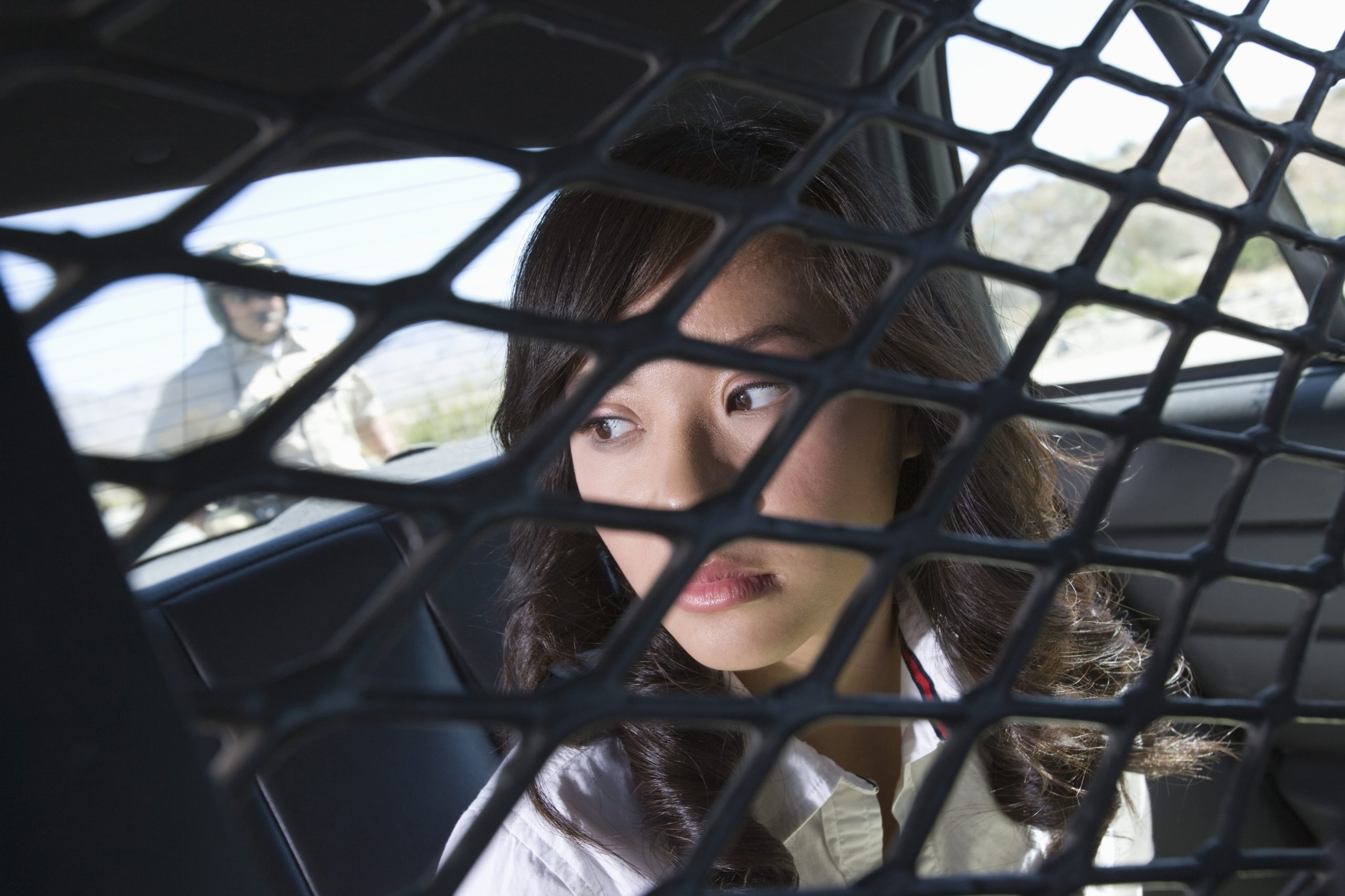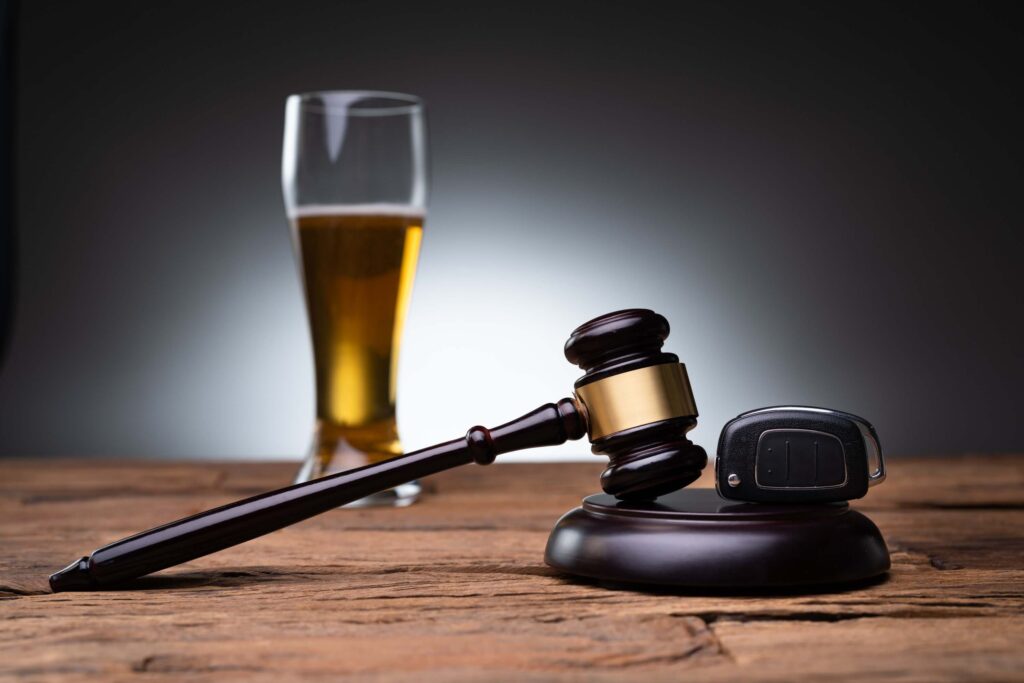Facing a DUI in Virginia can take a massive toll on your life. Not only do you face the possibility of going to jail and paying fines, but you may also wonder, “Is your license suspended immediately after a DUI in VA?” In most cases, an administrative suspension of your driver’s license occurs immediately after the arrest. This temporary driver’s license suspension can last several days or weeks, depending on the circumstances.

For many people, losing their driving privileges is the most challenging consequence of a DUI charge, and getting their license back becomes their biggest concern. An experienced attorney in your corner gives you the best chance to keep your license. Virginia DUI defense attorney Michael Pignone has fought aggressively for his clients facing DUI charges since 1995. You can rely on his extensive DUI defense experience, skill, and determination to minimize the impact of a driver’s license suspension and other penalties on your life.
Contact us today.
When Does License Suspension Start After DUI?
Virginia law is tough on people accused of DUI, especially when it comes to a suspended license and the loss of driving privileges. In Virginia, there are two types of license suspension or revocation. The first suspension period, known as an administrative suspension, occurs immediately upon arrest. The second is a mandatory suspension that happens after a DUI offense conviction.
Under Virginia law, there is an implied consent rule, which states that anyone driving on a public road in the commonwealth consents to providing a chemical sample if arrested for drunk driving charges. Refusing to provide a sample can lead to additional penalties, including challenging license suspension and delays in license reinstatement. If faced with these consequences, it is critical to seek legal guidance to navigate the complexities of a DUI case and protect your driving rights.
Virginia’s DUI laws indicate that the court must administratively suspend your driver’s license for seven days if it is your first serious offense and you either refuse the chemical test or your blood alcohol concentration (BAC) is 0.08 or greater. This happens without a court hearing; it is automatic. A second DUI charge triggers an administrative license suspension for 60 days. A third DUI offense means the court will suspend your license until your trial.
The law directs the arresting law enforcement officer to take your license from you and give you a written notice of your suspension. Then, the officer must deliver your license to the magistrate in court. The court will take possession of your license until your suspensions are complete.
You should understand that the law does not allow you to get a limited license during the administrative license suspension period. Additionally, your administrative license suspension and court-ordered suspension (if you are found guilty) must run consecutively.
Challenging a License Suspension
You have a right to appeal your administrative license suspension by filing an appropriate motion in court. The court will reinstate your license if you win your appeal. However, winning an appeal is not easy. Virginia law says that you have the burden to prove by a preponderance of the evidence that there was no probable cause for your arrest or a magistrate to issue a warrant. The judge will reinstate your driving privileges if you win the appeal.
It is a good idea for you and your DUI lawyer to discuss whether you have grounds to appeal your administrative license suspension. Having your license reinstated will help reduce the burden on your family and friends to provide you with transportation. Getting your license back could also help you keep your job to provide for your family. You do not have anything to lose by petitioning the court because appealing the administrative license suspension cannot prejudice you in your criminal defense.

How Long Is a License Suspension for DUI?
Virginia law states that the Department of Motor Vehicles (DMV) will have your license suspended for one year after a first DUI offense conviction. If you have a previous DUI record and a second conviction within ten years, the DMV must suspend your license for three years. For a third offense within ten years, the DMV is required to revoke your license indefinitely.
Although your DUI cases result in at least a one-year suspension, you may be eligible for a restricted license. This restricted license allows for essential activities such as medical appointments and participation in an alcohol safety program. Only the court can grant permission to obtain a restricted license after a DUI conviction, and a judge may provide immediate suspension of certain penalties and grant permission to apply for a restricted license on the day of your conviction if it is your first offense.
For DUI convictions, the legal limit of alcohol plays a significant role, and the police officer handling the case must provide evidence of intoxication. Repeat offenders may face stricter penalties, including mandatory jail time. Understanding your rights and options is crucial for navigating the consequences of a DUI charge.
Receiving a restricted license is not the same as getting your license reinstated. The limitations on your mobility are strict, and failing to abide by those restrictions can lead to severe consequences.
The court will put you on probation for at least one year. You must attend an Alcohol Safety Action Program (ASAP) during that probationary time. ASAP will monitor your probation and send you for screening to determine if you need treatment or further education. ASAP education classes are approximately two hours long, and the course runs for ten weeks. Additionally, you must install an ignition interlock device on your vehicle before you can get your restricted license, even after a first offense. ASAP will monitor your ignition interlock device for compliance. After a first-offense DUI conviction, the court does not have to order you to install an ignition interlock device. However, the DMV will mandate the installation of one before it will grant a restricted license to you.
The court can set other limitations on your restricted license. Some of those restrictions include driving:
- To and from work;
- To attend ASAP meetings;
- Only during work hours;
- To and from school;
- To attend medical or legal appointments;
- To go to church;
- To transport your child to and from school, appointments, and for child visitation; and
- According to other restrictions as specified in the court’s order.
The DMV will not grant a restricted license until you also pay the required fees. Additionally, the DMV may require you to show proof of financial responsibility for your car, such as an SR-22 insurance policy.
Contact an Award-Winning Defense Lawyer to Help Fight Your DUI License Suspension Today
With over 25 years of experience handling over 10,000 criminal cases, Virginia DUI defense lawyer Michael Pignone and his team with the Law Offices of Michael Pignone can help you regain control over your life with their legal representation. We thrive on finding new ways to help our clients beat their charges or get them through the criminal justice system efficiently so they can go on living their lives. Contact our office today for a free consultation.

